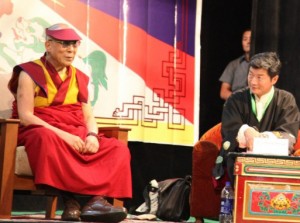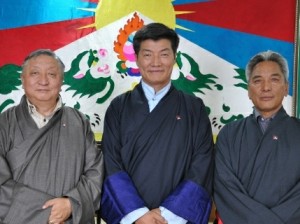The 4th All India Tibet Support Groups Conference, a group convened to support the preservation of Tibet’s culture and natural environment, met in Dharamsala from 9 to 11 June. His Holiness the Dalai Lama inaugurated the conference attended by over 150 Indian supporters, and expressed concern over environmental degradation, resource exploitation and threatened wildlife on the Tibetan plateau.
His Holiness also took aim at China, pointing out that for “millions of Chinese who have lost morality and way of life, Tibetan Buddhist culture of peace and compassion can help them immensely.”
“The preservation of Tibetan culture is not only concerned with 6 million Tibetans, but it is in the larger interest of Central Asia, including China,” His Holiness added.
The conference hosted many eminent panelists including Kalon Tripa Dr. Lobsang Sangay, who appealed to India to play a greater role in finding a permanent solution to the Tibet issue. “Over the last more than 50 years, the Indian people have stood for justice and freedom of Tibetans,” Dr. Sangay said.
Bashisht Narain Singh, a member of the Rajya Sabha (India’s upper house of Parliament), said that “steadfast efforts should be made through literature, peaceful demonstrations, debate, photography, etc. [to] support Tibetans in their struggle for truth and justice. We will succeed if we sustain our firm determination and committment to fight in support of the Tibetan people.”
On the final day of the conference, the support groups made a declaration stating that “meaningful and sincere negotiations with a sense of urgency between the representatives of the Dalai Lama… the Central Tibetan Administration and the Chinese leadership is the only way to resolve the issue of Tibet, and there is a need for immediate resumption of stalled talks.”
The conference attendees also adopted a ten-point action plan which included a resolution to undertake a nationwide campaign urging the Indian government and other Asian countries to pressure China into changing its ecologically disastrous policies on the Tibetan plateau. Support group members will also impress on India’s government the need for a meeting between the Indian Parliament’s standing committee on foreign affairs and the Kalon Tripa.





 Print
Print Email
Email